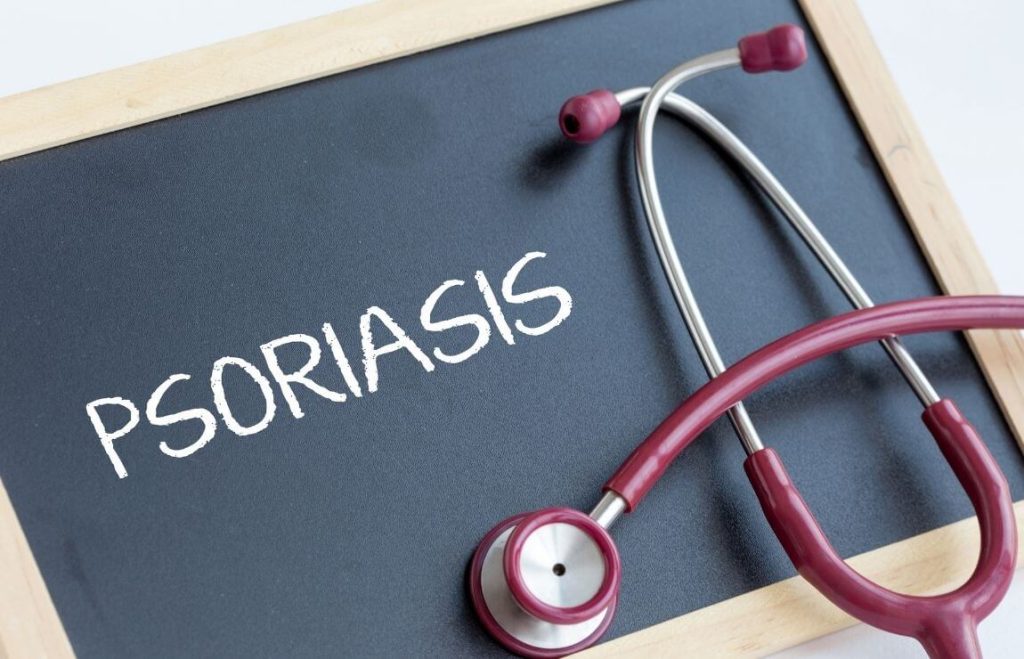Psoriasis is a skin disorder that causes patches of red and itchy scaly skin, most commonly on the knees, elbows, trunk, and scalp areas. Yes, it is unsightly and uncomfortable, and in some cases can be a chronic disease for some, with no cure.
If you suffer from psoriasis in pregnancy, here are a few things you should know, to give you a clearer idea on how it may affect your baby. We talk to Dr Bong Jan Ling, a Consultant Dermatologist at Sunway Medical Centre, to understand more about psoriasis in pregnant women.
Q1: What is the cause of psoriasis?
Psoriasis is an immune system driven condition with a link to genetic predisposition. Often, it can be exacerbated by environmental factors. 10% of psoriasis patients have a positive family history.
Some possible environmental triggers include stress, hormonal changes (especially in women), injury to skin, excessive alcohol consumption, certain medications and throat infection due to a bacterial called streptococcal.
Q2: Can pregnancy trigger psoriasis in mothers? If yes, what are the early signs of psoriasis?
Yes, pregnancy can be a trigger or cause a flare up of a stable condition. Early signs vary between individuals. It can start with excessive dandruff and scalp itchiness. Other common areas are nail changes, rash on elbows or knees, and rash on body folds.
Q3: Should the mother have an existing case of psoriasis, what are the chances of it becoming worse during pregnancy?
It is quite hard to predict because it affects pregnant patients differently. For some, there is a 20% chance of it worsening. However, most people find their psoriasis improve during pregnancy, due to the rise in progesterone level. There are also some patients who find their condition worsening after delivery.
Q4: If either parent has psoriasis, what are the chances their baby will have psoriasis, too?
The statistic quoted is around 10% positive family history.
Q5: Can the baby’s life be at risk if the mother has psoriasis?
In patients with very severe psoriasis during pregnancy, there is a higher risk of pregnancy induced hypertension. In these cases, there is a risk of low baby birth weight.
Q6: What are some of the methods to reduce psoriasis flare-ups during pregnancy?
In general, most dermatologist will discontinue oral or injection treatment during pregnancy. Low to moderate potency topical steroid is acceptable with plenty of emollients. Eat healthily, gentle exercise, minimise stress and small amount of UV exposure should also help. Medication may be necessary if the inflammation is very severe causing harm to the mother. Pregnant patient with severe psoriasis should be cared for at a specialist centre.
Q7: Are there any foods pregnant mothers with psoriasis should avoid?
Most important is to avoid alcohol and smoking. Otherwise, psoriasis has not been linked to any other food.
Q8: Can mothers with psoriasis still breastfeed? If yes, what are the chances it will be passed down to the baby while breastfeeding?
Yes, breastfeeding should be encouraged provided there is no psoriasis on the nipple. There is no risk of passing psoriasis to the baby as this is not an infective condition but a condition due to complex immune system issues.
Q9: What should a breastfeeding mother do if their psoriasis flares up around the nipple area?
Treat the affected areas aggressively with topical treatment, using topical steroid and emollient. Alternatively, use a breast pump. The reason to avoid direct contact is that the area can be painful and the inflammation worsens from regular suckling or friction.
Q10: Can the amniotic fluid and the mothers’ blood during delivery make the psoriasis flare-up? If yes, to mother or baby?
There is no consequence to the baby. Some post-partum flare up can be expected due to hormonal changes.
We thank Dr Bong Jan Ling for sharing on this topic with us, and we hope that mummies who do suffer from psoriasis may have their concerns or worries put to rest with some reassurance of the shared information above.
Source: Dr Bong Jan Ling, Consultant Dermatologist, Sunway Medical Centre
Disclaimer: The information provided in this article is for informational purposes only and should not be considered as medical advice from Motherhood. For any health-related concerns, it is advisable to consult with a qualified healthcare professional or medical practitioner.
For more insightful stories and fun recipes, stay tuned to Motherhood Story!
